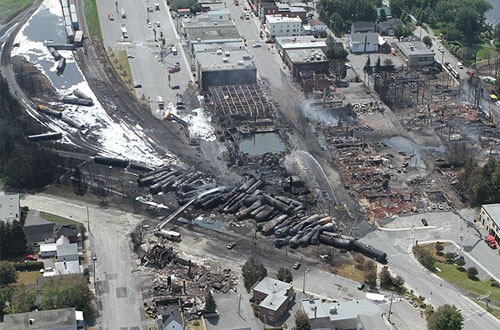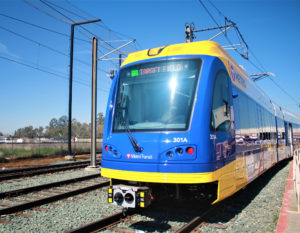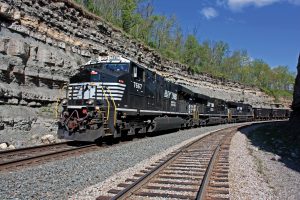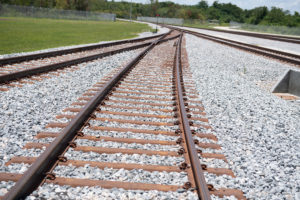TSB: Systemic problems lead to Lac-Mégantic train accident; additional safety measures needed
Written by Mischa Wanek-Libman, editor
The Transportation Safety Board of Canada (TSB) investigation into the July 2013 Montreal, Maine & Atlantic Railway (MMA) train derailment in Lac-Mégantic, Quebec, concluded that a number of factors led to the accident.
The TSB is also now calling for additional physical defenses to prevent runaway trains and for more thorough audits of safety management systems to ensure railways are effectively managing safety.
On the evening of July 5, 2013, an MMA train was parked on a descending grade on the main track in Nantes, Quebec. The engineer applied hand brakes on all five locomotives, plus two other cars and shut down all but the lead locomotive. Railway rules require hand brakes alone to be capable of holding a train, and this must be verified by a test. That night, the locomotive air brakes were left on during the test, meaning the train was being held by a combination of hand brakes and air brakes, giving a false impression that the hand brakes alone would hold the train. When a fire began in the engine, emergency responders shut off the engine, causing the air holding the independent brakes to leak off, reducing their effectiveness. Without enough force from the hand brakes, the train began rolling downhill toward Lac-Mégantic, just more than seven miles away. As it moved down the grade, the train picked up speed, reaching a top speed of 65 mph, and derailing near the center of town. Almost every derailed car was breached, releasing almost six million liters (1.58 million gallons) of crude oil, which ignited into a large fire.
“Accidents never come down to a single individual, a single action or a single factor. You have to look at the whole context,” said Wendy Tadros, Chair of the TSB. “In our investigation, we found 18 factors played a role in this accident.
The TSB report labeled MMA’s safety culture as weak and said the railroad did not have a functioning safety management system to manage risks. The report also said the TSB learned that Transport Canada did not audit MMA often and thoroughly enough to ensure it was effectively managing the risks in its operations. Additionally, TSB said it found problems with training, employee monitoring and maintenance practices at MMA; with industry rules for the securement of unattended trains; and with the tank cars used to carry volatile petroleum crude oil.
“This investigation and its findings are complex, but our goal is simple: we must improve rail safety in Canada,” added Tadros. “That’s why, in addition to our three previous recommendations, we are issuing two new recommendations to ensure unattended trains will always be secured, and Canada’s railways will have safety management systems that really work to manage safety.” She concluded, “This is about governments, railways and shippers doing everything in their power to ensure there is never another Lac-Mégantic.”
The TSB’s full report if available here.





